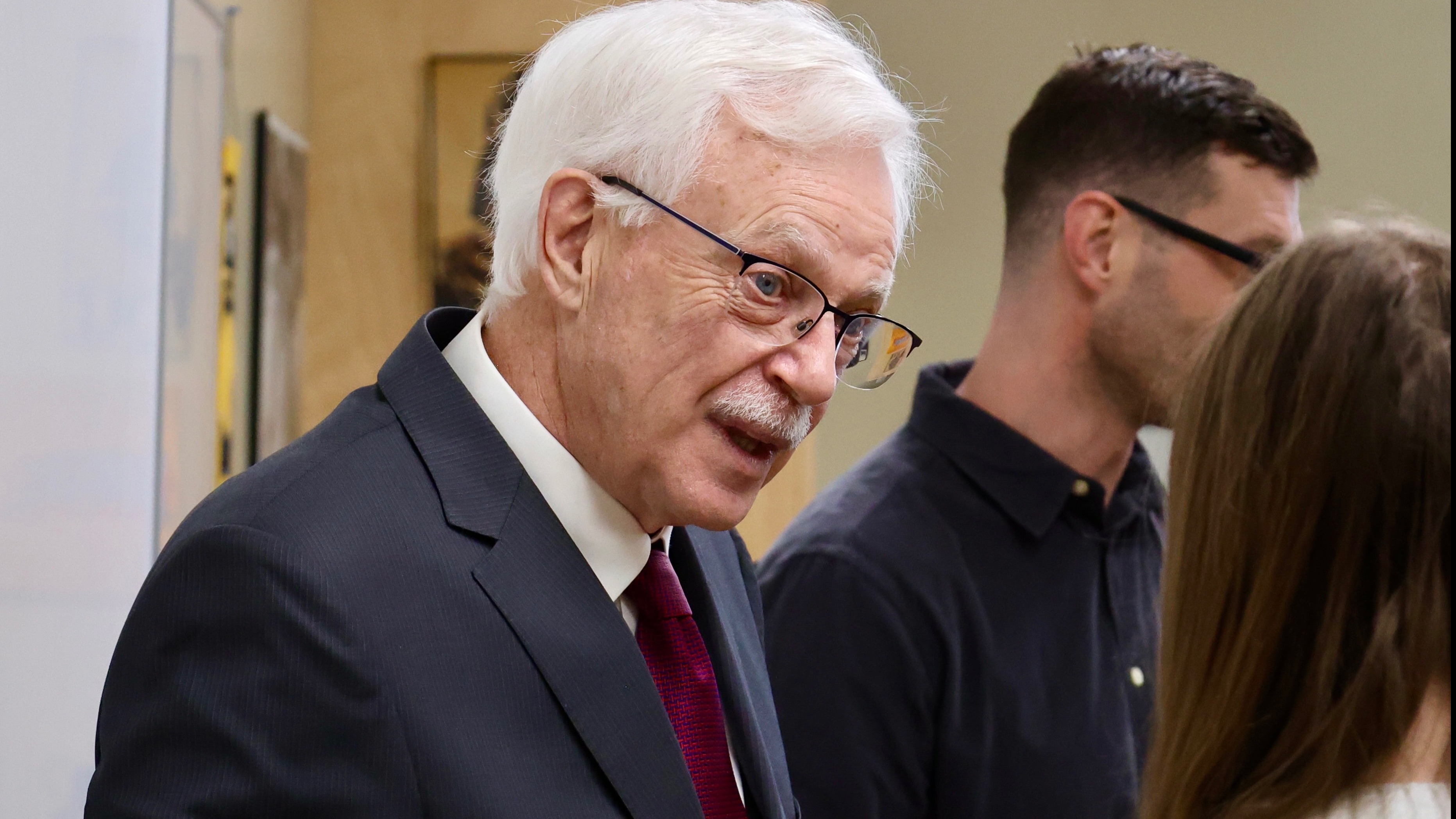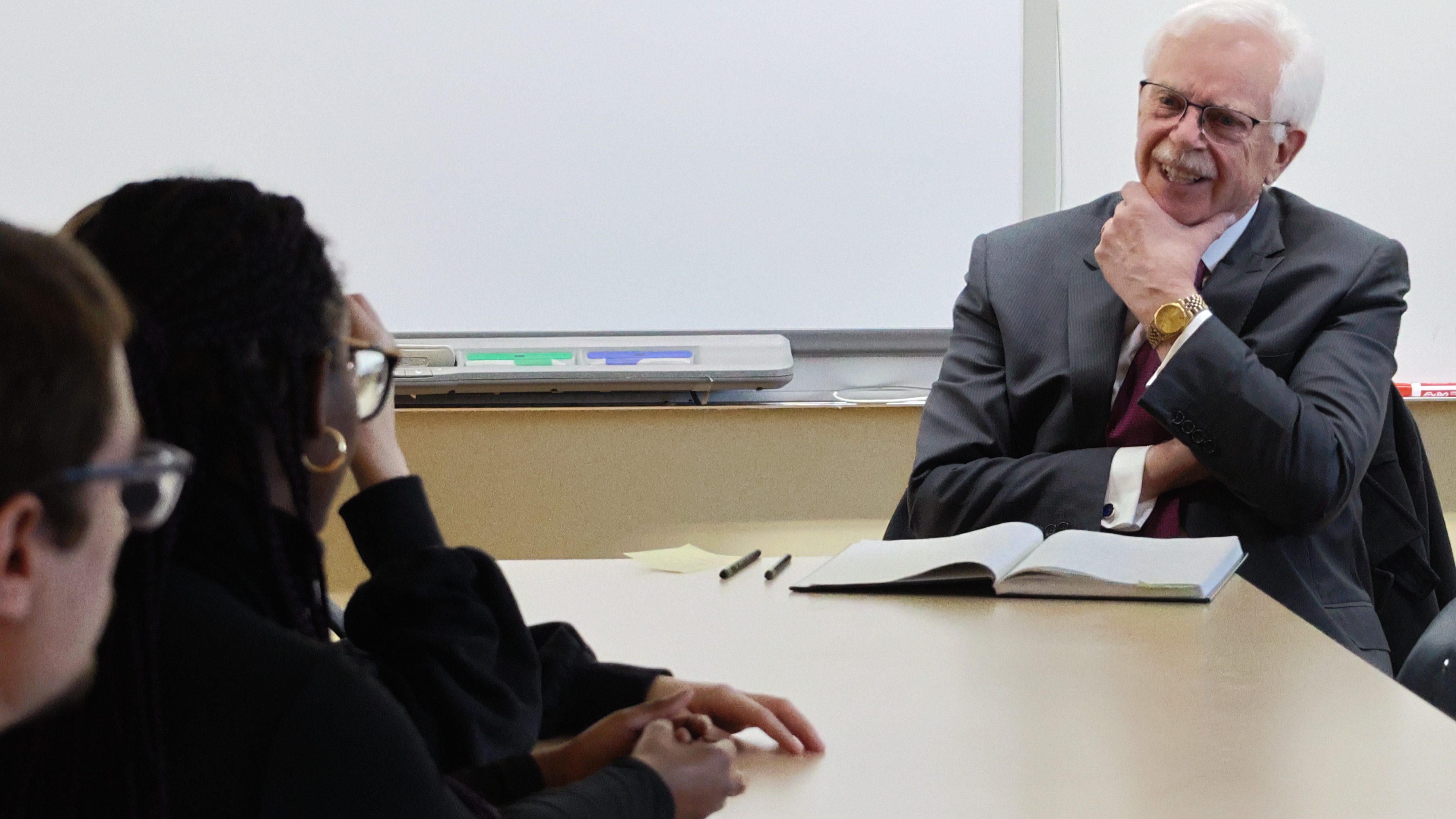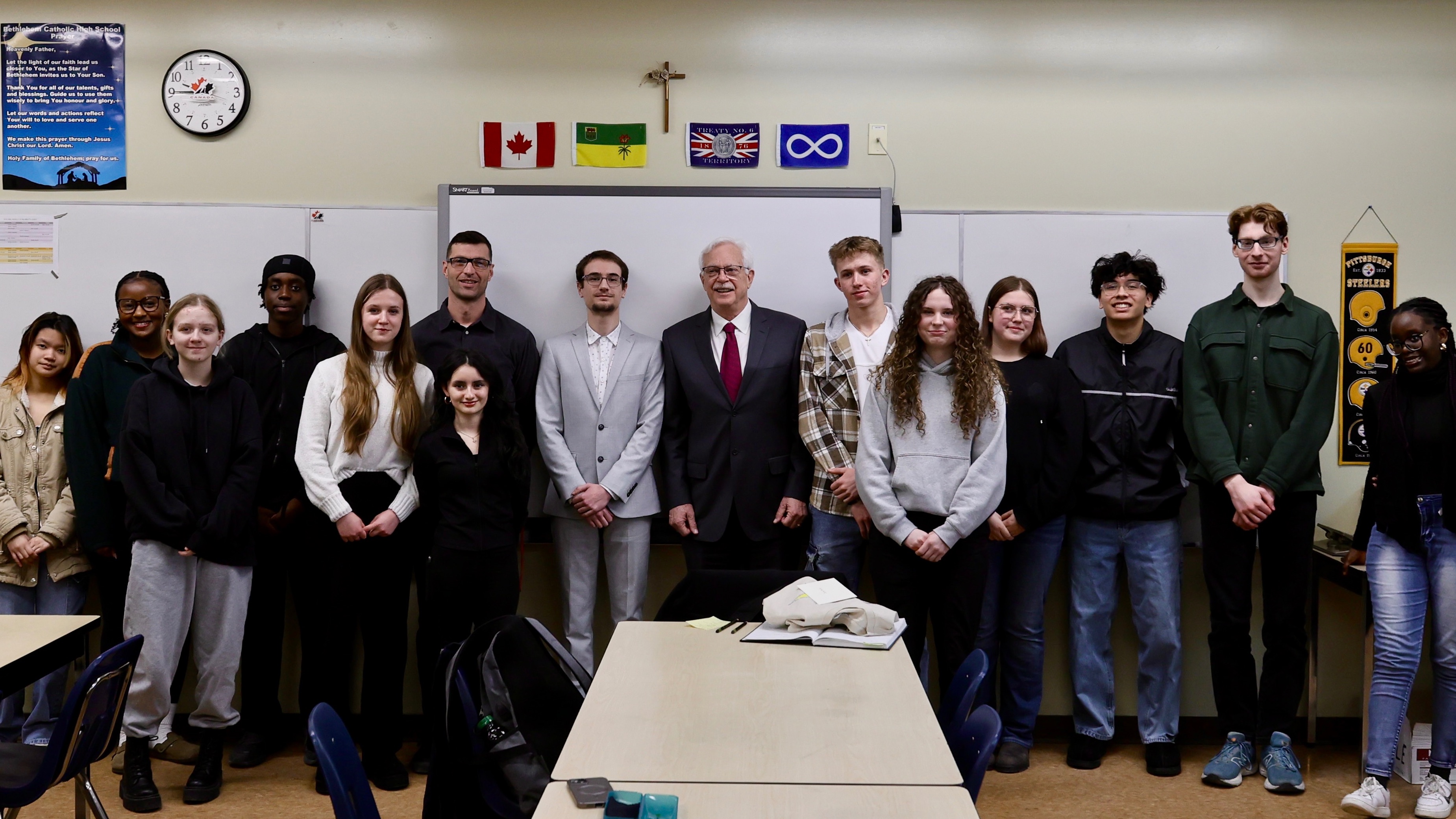Learning from a legal leader: Senator Arnot speaks to Law 30 students

Through the Senate of Canda’s SENgage youth outreach program, Senator David Arnot recently presented to Jared Nordick’s Law 30 students at Bethlehem Catholic High School.
SENgage gives young people from across the country the opportunity to connect with senators and learn more about the work they do and the role of the senate in Canada.
Senator Arnot’s career experience makes him a natural fit to present to students with an interest in law. After earning his law degree from the University of Saskatchewan, he became crown prosecutor and later a judge in the Provincial Court of Saskatchewan. Before his appointment as an independent senator in 2021, he served as treaty commissioner of Saskatchewan and chief commissioner of the Saskatchewan Human Rights Commission.
“I consider myself to be a parliamentarian not a politician,” Sen. Arnot stated as he explained the role of the upper chamber is Canada’s parliamentary system. Much of his work includes work in various senate committees.
Connecting his legal career with his current work, Sen. Arnot discussed the wrongful conviction of David Milgaard for the murder of Saskatoon nurse Gail Miller. Milgaard served 23 years in prison before being exonerated. Sen. Arnot was Crown prosecutor in the Larry Fisher case; Fisher was later convicted of Miller’s death through DNA evidence.
In the senate, Sen. Arnot championed Bill C-40, the Miscarriage of Justice Review Commission Act (also known as David and Joyce Milgaard’s Law), ensuring it passed unamended. It received royal assent in December 2024, just before parliament was prorogued.
“It was a bill 55 years in the making,” Sen. Arnot remarked.
Students had the opportunity to ask questions, which ranged from hobbies and interests, to advice for someone interested in a law or politics, and extraction of resources on First Nations land.
In his free time, Sen. Arnot enjoys a broad range of the performing arts. Broadway plays, and Paul McCartney and Rolling Stones concerts got an honourable mention, as did some of his favourite books: the Inspector Rebus series by Sir Ian Rankin and Rumpole of the Bailey series by John Mortimer.
On top of studying and working hard, Sen. Arnot’s advice to those interested in law and politics is to be good and educated citizens. Referencing the Concentus Citizenship Education Foundation’s materials, he stated that we all must know our rights and responsibilities to be respectful citizens. He commented that society will “be measured by how we treat the most vulnerable” and that we should strive to build the type of society in which we want to live.
Drawing on his legal expertise and experience as treaty commissioner, Sen. Arnot briefly addressed the question of resource extraction, admitting time constraints would prevent a thorough discussion. He stated Canada’s relationship with First Nations peoples is both complex and fragile, that treaty rights have not always been recognized throughout our history, that mending relationships will take time (maybe even generations), and resolutions and reconciliation will come through education.


